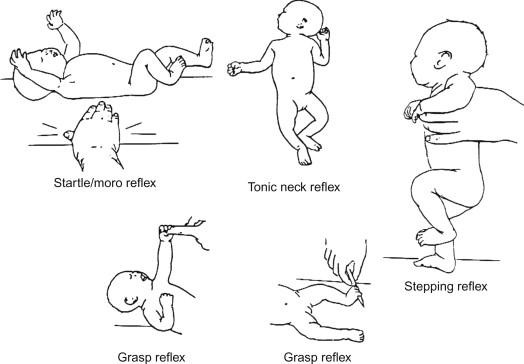The mother of a 1-month-old infant tells the nurse she worries that her baby will get meningitis like the child's older brother had when he was an infant. The nurse should base her response on which of the following?
Vaccinations to prevent pneumococcal and Haemophilus influenzae type B meningitis are available.
Often a genetic predisposition to meningitis is found.
Meningitis rarely occurs during infancy
Vaccination to prevent all types of meningitis is now available
The Correct Answer is A
A) Vaccinations to prevent pneumococcal and Haemophilus influenzae type B meningitis are available.
Explanation: This statement is true. Vaccinations to prevent certain types of bacterial meningitis are available. Pneumococcal and Haemophilus influenzae type B (Hib) vaccines are included in routine childhood immunization schedules to protect against the bacteria that can cause meningitis and other serious infections. These vaccines have significantly reduced the incidence of bacterial meningitis in infants and children.
B) Often a genetic predisposition to meningitis is found.
Explanation: This statement is generally false. While there may be some genetic factors that influence susceptibility to infections, including meningitis, genetic predisposition is not a primary consideration when discussing the risk of meningitis. Meningitis is more commonly caused by bacterial or viral infections, and genetic predisposition is not a significant factor in its occurrence.
C) Meningitis rarely occurs during infancy.
Explanation: This statement is false. Meningitis can occur in infants, including newborns. In fact, infants are one of the age groups at higher risk for meningitis due to their underdeveloped immune systems and susceptibility to infections. Bacterial meningitis, in particular, can be severe and life-threatening in infants.
D) Vaccination to prevent all types of meningitis is now available.
Explanation: This statement is not entirely accurate. While vaccinations are available to prevent certain types of bacterial meningitis (such as pneumococcal and Hib meningitis), there is no single vaccine that can prevent all types of meningitis. Meningitis can be caused by various bacteria, viruses, and other pathogens, and the vaccines target specific ones. It's important for caregivers to ensure that their infants receive recommended vaccines to protect against the most common causes of meningitis.
Nursing Test Bank
Naxlex Comprehensive Predictor Exams
Related Questions
Correct Answer is A
Explanation
A) A step-wise approach will be used to reduce the dosage gradually.
Explanation:
After a certain period of seizure control, a healthcare provider may consider gradually tapering and discontinuing anti-seizure medications in consultation with the child's neurologist. This is often done in a step-wise manner to monitor the child's condition and minimize the risk of seizure recurrence. Stopping anti-seizure medications abruptly can increase the risk of seizures returning. Therefore, the response provided in option A is the most accurate and relevant to the situation.
The other options are incorrect:
B) Your child will always suffer seizures:
This statement is not accurate, as some children with epilepsy can achieve long-term seizure control with appropriate treatment. Epilepsy management varies from person to person, and many individuals can experience extended periods of seizure freedom.
C) This is always a hereditary disorder:
Epilepsy can have both genetic and non-genetic causes. While there are genetic forms of epilepsy, not all cases are hereditary. Epilepsy can be caused by a variety of factors, including brain injuries, infections, and other medical conditions.
D) Only her male offspring will experience seizures:
Epilepsy does not discriminate based on gender. Both males and females can be affected by epilepsy. This statement is not accurate and does not reflect the reality of epilepsy as a medical condition.
Correct Answer is D
Explanation
Reflexes play a crucial role in evaluating the neurological status of infants.
Moro reflex: Also known as the startle reflex, the Moro reflex is a normal response in infants. It occurs when an infant is startled by a sudden noise or movement. The baby responds by extending their arms and legs, followed by a quick contraction. This reflex usually disappears around 4-6 months of age.
Tonic neck reflex (fencer's reflex): This reflex involves turning an infant's head to one side, causing the arm on that side to extend and the opposite arm to flex. It's a normal reflex that typically disappears around 4-6 months of age.
Withdrawal reflex: The withdrawal reflex is a normal response to a stimulus, such as touching a baby's foot with a cold object. The baby will pull their leg away in response to the stimulus.
Symptomatic of decorticate or decerebrate posturing (options A and B):
Decorticate and decerebrate posturing are abnormal postures seen in individuals with severe brain damage or injury. Decorticate posturing involves the arms being flexed and held close to the body, while decerebrate posturing involves the arms being extended and the wrists being pronated. These reflexes are typically indicative of significant neurological dysfunction and are not expected in a 2-month-old infant after a car accident.
Indicators of severe brain damage (option C):
The reflexes described (Moro, tonic neck, and withdrawal reflexes) are not indicative of severe brain damage in a 2-month-old infant. These reflexes are normal for an infant of this age and are part of their typical neurological development.
Normal findings (option D):
The reflexes described are normal findings in a 2-month-old infant and are expected as part of their developmental milestones.

Whether you are a student looking to ace your exams or a practicing nurse seeking to enhance your expertise , our nursing education contents will empower you with the confidence and competence to make a difference in the lives of patients and become a respected leader in the healthcare field.
Visit Naxlex, invest in your future and unlock endless possibilities with our unparalleled nursing education contents today
Report Wrong Answer on the Current Question
Do you disagree with the answer? If yes, what is your expected answer? Explain.
Kindly be descriptive with the issue you are facing.
